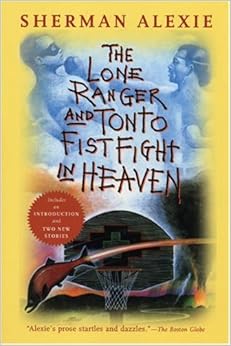The goal for this unit is to explore what it means to be a Native American through excerpts, videos, short stories, articles, and primary texts. Using these sources, we will essentially answer this question:
- What is the Native American experience and how has it been shaped and defined (given their history and authors’ exploration of the topic)?
Some themes and guided topics we will explore:
- The Traditional vs. The Contemporary: How do contemporary Native Americans wrestle with their pasts, both personal and in a larger historical context?
- Spirituality: What is spirituality? What role does it play?
- Pride: How important is pride? How has the concept changed over time?
- Warrior: What does it mean to be a warrior? Why is it important?
- Storytelling: What role does storytelling have in the Native American culture?
- Resistance: How have Native Americans and their leaders resisted assimilation? How have they been assimilated?
- Migration: How were Native Americans forcibly relocated? How did this affect their existence?
- Reservation Life-Alcoholism, poverty, and poor health: Why have so many Native Americans fallen victims to alcoholism, live in poverty, and have poor health?
After our initial discussion, we will watch the fantastic 20/20 special "Children of the Plains," and take notes. From there we will dive into some of Sherman Alexie's work, namely his book The Lone Ranger and Tonto Fistfight in Heaven. This book is a series of connected short stories that explore contemporary reservation life. We will read four short stories: "Every Little Hurricane," "A Drug Called Tradition," "The Only Traffic Signal on the Reservation Doesn't Flash Red Anymore," and "Indian Education."

No comments:
Post a Comment